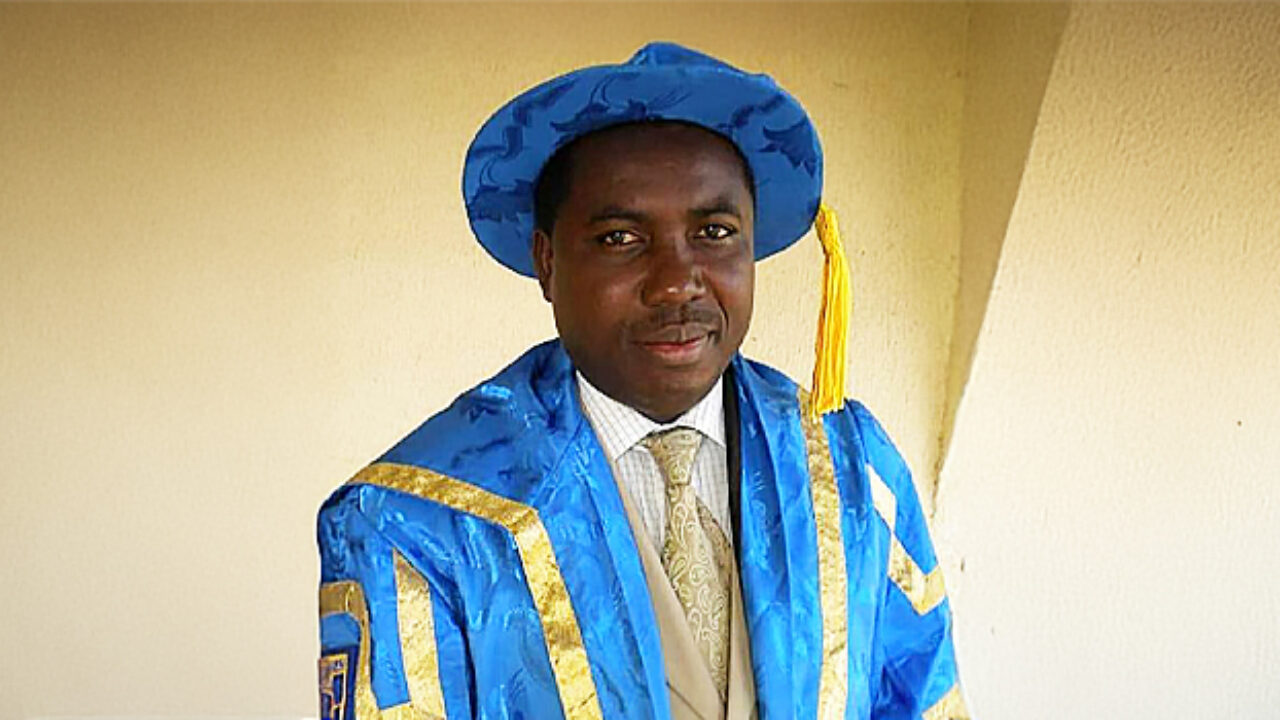Olusegun Adeniyi
The German national team arrived the 2022 FIFA World Cup in Qatar to play politics rather than football. In their pre-match photograph against Japan, players covered their mouths with their hands in a cynical attempt to disparage FIFA’s stance regarding the ‘OneLove’ armband campaign. On the field of play, they left their goalpost open for Japan to score two quickfire goals after they had taken the lead. With that loss, and subsequent draw with Spain in their next match, Germany never recovered despite their 4-2 defeat of Costa Rica. That was how one of the pre-tournament favourites ended up crashing out in the first round for the second (and successive) time in their illustrious history of World Cup participation. But that was just the beginning of the drama in Qatar. With a few minutes to the end of the quarterfinals match between Brazil and Croatia on 9th December, a Nigerian reporter thought he had seen enough to play Nostradamus by filing a story which his editor also rushed to publish. “Brazil have edged out Croatia 1-0 to seal a place at the semi-finals of the 2022 World Cup,” proclaimed the newspaper, promising to provide details later. For context, the newspaper also added, “Neymar’s solitary strike sends Brazil to semi-final.” But in the 117th minute, just three minutes to the end of extra time, Croatia levelled the score and in the deciding penalties that followed, defeated Brazil 4-2 to pick the semi-final slot!
Despite all the issues surrounding the choice of Qatar as host for the 2022 World Cup and the fact that it is holding for the first-time mid-season, there can be no doubt that the football to which we have been treated since 20th November has been exciting. On Sunday, we are going to witness an epic final between defending champions, France, and the Lionel Messi-inspired Argentina. How can anybody not love football?
Okay, let me ‘face reality’. Like most Nigerians, I am interested in the coming general election, and I am going to engage the process before, during and after. We must build a society that works for all and on that count, leadership matters. But there is also more to life than politics. I will come back to the 2023 general election and associated issues in the coming weeks so for those who learn enduring lessons even from the seemingly mundane things, Qatar ’22 has also taught us much about business, politics, and life.
Even before the opening match was played between Qatar and Ecuador, QNET, a Hong Kong-based marketing company, had reminded football fans of lessons from previous World Cups that would also apply in Qatar. Performance, according to the company, matters more than branding, talent doesn’t guarantee success, scoring takes effort and losing isn’t everything, perhaps because of the redemption that there will always be another World Cup.
In ‘The Case of the Benched forward’, John Rekenthaler wrote on three lessons prospective investors can take from Qatar with illustration on how Portugal Manager, Fernandos Santos twice benched one of the best footballers in the world and team captain, Cristiano Ronaldo. In the round of 16 match against Switzerland in which Ronaldo was first benched, Portugal won the match by 6 goals to 1 with Goncalo Ramos who stood in for him scoring the first hattrick at the tournament. That the same formula failed against Morocco which eventually knocked Portugal out in the quarterfinals formed the kernel of Rekenthaler’s thesis. After analysing the behaviour of fans to Santos’ decisions in the two matches that produced different outcomes, Rekenthaler concluded that ‘sports fans and investors are prone to the same mistakes.’ Last-minute goals like the one scored by South Korea against Portugal to pick the round of 16 ticket at the expense of Uruguay or the one by Netherlands that took the match against Argentina to extra time also remind us that in football, as in life, it is never over until it is over. Those who are writing off Nigeria because of the current challenges are therefore not conversant with history. But hey, I am not going into all that today; I am talking football!
Motivational speakers will write books about what has transpired in the past three weeks at the World Cup in Qatar. From watching better teams with star players defeated by teams comprising average players, according to Sylvia Mwefigye, we learn that sometimes, even the best of us can have a bad day. But perhaps the biggest lesson we can take from Qatar is that of teamwork in which the whole is far bigger than the sum of its parts. Saudi Arabia defeated Argentina in the group stage because every player gave his best. Same with Cameroon that defeated Brazil and the ousting of Belgium ranked number two by FIFA by Morocco. An unnamed blogger in Liquidplanning.com sums up the lesson this way: “The strength of a whole replaces the weakness of an individual. It also makes for a softer fall when your knees buckle.”
Meanwhile, there is perhaps no better way to teach the essence of migration and what I would call the power of Diasporan patriotism than what we have seen in this World Cup. For instance, 14 of Morocco’s 26-man squad were born outside the country, more than any other team at the tournament. The goalkeeper, Yassine Bounou, whose prowess helped to defeat Spain in the penalty shootout, was born in France. Achraf Hakimi, who also scored the decisive penalty against Spain was born and raised in Madrid, the Spanish capital. We all know about the multinational French team, but these are players born in France. Conversely, according to a report by Alexander Onukwe and Amanda Shendruk, “of the 59 French-born players in this World Cup, more than half represent African countries.”
When Breel Embolo scored for Switzerland against Cameroon, he didn’t celebrate as a mark of respect for the ancestral African country where he was born before his parents emigrated. And then there is the interesting case of the Williams brothers. In Qatar, Inaki Williams played for the ‘Black Stars’ of Ghana where their parents hailed from while younger brother, Nico Williams played for Spain where both were born and raised. With 137 of the 830 players from the 32 national teams representing countries other than their birthplaces, “16.5% of players, or about 1 in every 6, were born in a country other than the one they’re representing…That’s the highest share in World Cup history”, according to a report on Vox.com—a revelation on how migration impacts progress across the world in all fields of human endeavour, including football.
On a personal level, this World Cup has also taught us the value of seizing opportunities whenever they come. In the French national team, Olivier Giroud was supposed to be a squad player, essentially to deputise for their main striker, the 2022 Ballon d’Or winner, Karim Benzema. But just days before the competition kicked off, Benzema sustained a thigh injury during practice session. And Giroud not only became a prolific scorer in Qatar, but he also broke the French national record at the tournament. There have also been magical moments that speak to our common humanity. After the match against Brazil, Leonard, the young son of victorious Croatian player, Ivan Perisic, saw Neymar crying and offered a comforting gesture that melted hearts and forced the heartbroken Brazilian player to embrace him.
I am sure every football fan would have one or two lessons to pick from what has transpired on the field of play in the past three weeks at the 2022 World Cup. The most enduring lesson, however, is the power of the collective. And that can serve us in Nigeria. Building a successful nation requires teamwork, just as in football. We saw it with ‘small’ teams in this competition, as demonstrated by Morocco, the first African team to reach the semi-final of the World Cup. Their strength was in the collective, with everybody playing to his strength. There is no greater formula for success, whether in politics, sports, or the business of nation-building. As the late American author and disability rights advocate, Hellen Keller reminded us, “Alone we can do so little; together we can do so much.”




























































